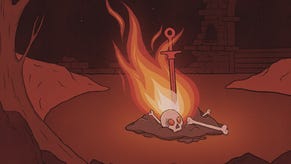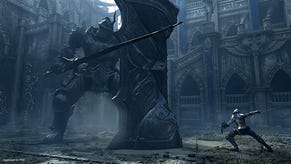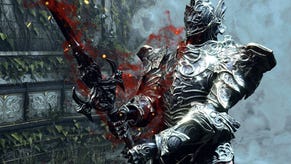Souls Survivor
Director Hidetaka Miyazaki discusses the origins and ideology behind From Software's masterpiece.
Since we reviewed it in March last year, Demon's Souls has gone from potential cult hit to wildly acclaimed classic, earning itself a US and, soon, European release, several Game of the Year accolades and thousands more enthusiastic disciples. It is one of the greatest unlikely success stories of modern gaming, and proof of the power of community in the internet age.
Originally an Asia-only release from a developer whose other games, when they even saw the light of day outside their country of origin, never really penetrated the public consciousness, its success abroad has been driven entirely by phenomenal critical acclaim and word-of-mouth popularisation. In the absence of a vast marketing budget or an established brand to stick on the cover, Demon's Souls proves that being good sometimes really is enough.
The key to Demon's Souls' brilliance, in retrospect, is a combination of an old-fashioned refusal to pander to the player, forward-thinking online concepts and an extraordinary coherence of creative vision. Its levels are perfectly self-contained pieces of dark fantasy, each with its own artistic direction and sadistic gameplay twists, and its enemies and bosses range from the unspeakably gruesome to the gigantic and monstrous to the strangely touching. But all of it conforms to the same darkly uncompromising ethos.
We've never yet encountered a Japanese developer willing to boast of his game's success, but Demon's Souls' director Hidetaka Miyazaki's surprise is more credible than most. "We never thought that we would receive so many awards. We are incredibly happy and deeply grateful for all the support we have received," he tells Eurogamer.

It's particularly surprising because Demon's Souls wasn't well understood by its Japanese publisher, Sony - as reflected in the decision not to publish it outside of Asia, which it later admitted was a mistake.
"To be honest, while the game was still under development, we weren't being fully understood and it was very difficult for us," says Miyazaki. "We weren't interested in following any trends, but I suppose we weren't paying attention to a practical world view, which was rather difficult."
Demon's Souls was born out of a desire to return gaming to its fundamentals - that is, to re-embrace the trial and error and difficulty that we used to take for granted, and leave the player to work things out for themselves. "From the outset, we started making it based on a 'back-to-basics' concept," says Miyazaki. "We wanted a 'game-like game', something that was fun in the way games used to be, and we were confident that we could do it.
"We wanted to stay clear of current trends... we thought it was only going to be judged by a handful of core players. Without meaning to attribute special significance to the game, now that there are so few games of its type, we thought that there was definitely a need for it, and we also felt that it was something that the current games industry needed. With all these ideas in mind, we created Demon's Souls."
















